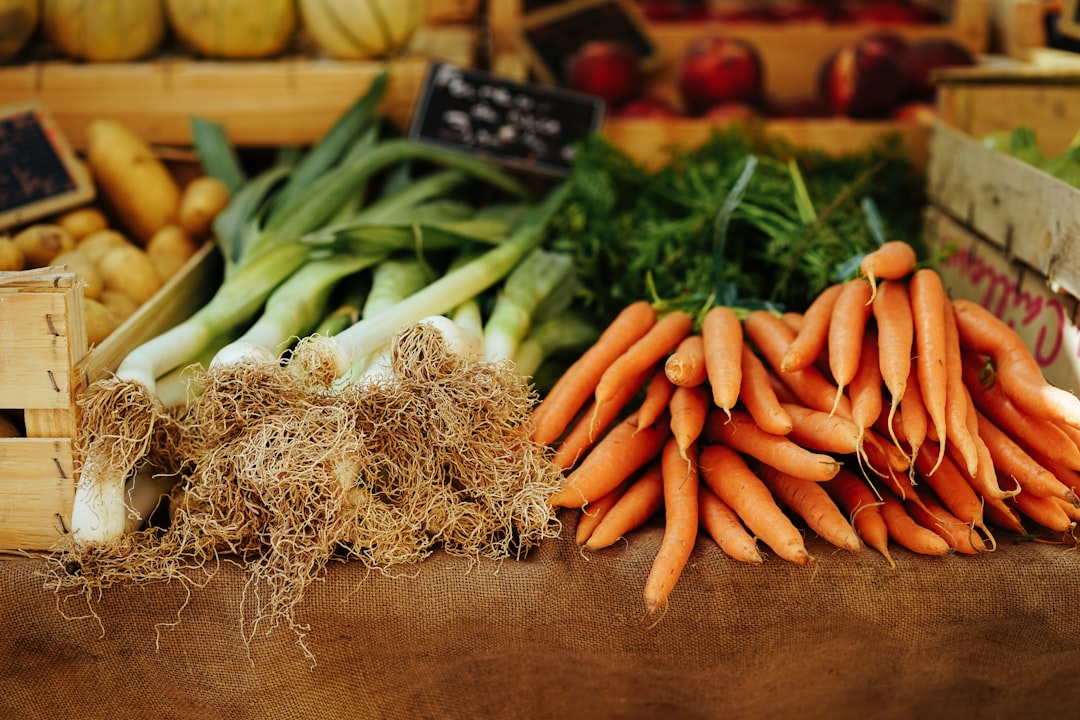Be good to your gut every Christmas: prebiotics nourish your microbiome, grow the communities of beneficial bacteria, and support the production of health-promoting organic compounds.
The holiday season is all about hosting and feasting, so don’t forget your gut microbes. After all, you have been hosting them for years - since you were born in fact.
Your colon is home to trillions of symbiotic bacterial cells that trade accommodation for labour, and honestly, you wouldn’t be the same without them.
On any day of the year, and possibly even more so on Christmas day, many Westerners successfully avoid the daily recommended amount of fruit, vegetables, legumes, nuts, and whole grains.
Yet these carbohydrates are essential for wellbeing because they are a source of prebiotics. There are even prebiotics in your favourite festive Christmas dishes.
These dietary substances provide nourishment for gut bacteria which, in turn, transform them into beneficial substances for the body like short-chain fatty acids (SCFAs).
Carrots
It wouldn’t be Christmas without these bright conical root vegetables. Not only are they a great source of beta-carotene (i.e. a plant pigment the body can turn into vitamin A), they contain several prebiotics.
Arabinogalactan is one of them: it supports the abundance of beneficial microbes like Bifidobacterium and Lactobacillus acidophilus that ferment it into short-chain fatty acids.
Pectin, another prebiotic, is subject to the same health-promoting fate by Bifidobacterium, Faecalibacterium, Anaerostipes, and Roseburia. You'll also get pectin from apples and cranberries.
DNA sequencing has made it possible to identify the butyrate-producing potential of your microbiome as well as the diversity and abundance of microbes.
Onions
The staple of any good Christmas stuffing for vegetarians and Turkey gobblers alike are onions. Pungent, sweet, at times overpowering - these edible bulbs guarantee a party in your mouth and in your microbiome.
Don’t be deterred by their 7+ syllable scientific names: FOS (fructo-oligosaccharides), GOS (galacto-oligosaccharides)… and our gassy friend, inulin. Specific oligosaccharides such as these resist the enzymes found in saliva and the digestive tract, making it all the way to your colon.
FOS and GOS also support the growth of Bifidobacterium and Lactobacilli that ferment them into butyrate and lactate, both of which have anti-inflammatory properties.
Lactate isn’t a short-chain fatty acid, but it can be fermented by the microbiome into butyrate.
Jerusalem artichokes
Hold on to your pants (literally). Better known to insiders as “fartichokes”, whoever sung that beans are the “magical fruit” had clearly never been exposed to Jerusalem artichokes.
Not that they can help it: it’s their high inulin content. Sure, microbes love it, but it’s best to partake at a reasonable pace. Trust us, we’ve all been there: they’re like edible pokemon, you want to catch them all…
But you’ll regret it a few hours later. Take it easy, start with small portions and work your way up. They are also a source of GOS and FOS; scroll up to “Onions” to read more about them.
High levels of inulin can cause symptoms like intestinal discomfort, flatulence, bloating, stomach noises, belching, and cramping… Drink lots of water and a brisk walk will help.
Potatoes
These tubers are essentially a powerhouse of starches with prebiotic functions when prepared correctly. Specifically, they are a source of resistant starch type three, amylopectin, and dextrin.
When cooked AND cooled, rather than being broken down into sugars in the small intestine, they make it to the colon where they are transformed into, that’s right, short-chain fatty acids.
You know it, it’s all about the SCFAs. While starches are not technically dietary fibres, prebiotic starches are molecules that withstand digestion in the same way fibre does.
Prebiotic starches can’t be turned into glucose by the body: instead they are fermented into beneficial substances by gut microbes like SCFAs.
Brussels sprouts
These mini-cabbages had a bad few decades: many will still remember the grey and sulphurous-smelling balls of revulsion from the 90’s Christmas dinner. Fortunately, thanks to a handful of visionary chefs and the Internet, the world has once again fallen in love with these edible buds.
They also serve up plenty of prebiotics to the microbiome and preserve their dietary fibre content during cooking! Brussels sprouts are a source of words that end in -ose (i.e., arabinose, rhamnose, xylose, mannose, galactose).
This suffix is a biochemical indication that such substances are forms of sugars, but in this case, they are only made for bacterial consumption. For example, arabinose supports butyrate-producing microbes and Bifidobacterium. It can even promote healthy immune system function.
So make your microbes merry these holidays: don’t skimp on your Christmas sides. You may find it encouraging to know that high-fibre foods are more filling and digest faster than protein and fats.
And if you want to jazz your table up with some less traditional plant-based foods, do it: the more variety on your plate, the more microbial variety in your gut!
☝️ Remember
1. Every bite is a new opportunity for health.
2. Plant-based foods are the main sources of prebiotics.
3. Prebiotics are food molecules fermented by the microbiome.
4. Fibre, types of starches, and oligosaccharides are prebiotics.
5. Not all starches are prebiotic, some are turned into glucose.
5. Fermentation turns prebiotics into short-chain fatty acids (SCFAs).
6. SCFAs help protect against disease and inflammation.
7. If you made it this far, you’re already better informed than most.
- Nyman, Margareta. (1995). Effects of processing on dietary fibre in vegetables. European journal of clinical nutrition. 49 Suppl 3. S215-8.
- Birt, D. F., Boylston, T., Hendrich, S., Jane, J. L., Hollis, J., Li, L., McClelland, J., Moore, S., Phillips, G. J., Rowling, M., Schalinske, K., Scott, M. P., … Whitley, E. M. (2013). Resistant starch: promise for improving human health. Advances in nutrition (Bethesda, Md.), 4(6), 587-601.
- Vince AJ, McNeil NI, Wager JD, Wrong OM. The effect of lactulose, pectin, arabinogalactan and cellulose on the production of organic acids and metabolism of ammonia by intestinal bacteria in a faecal incubation system. Br J Nutr. 1990;63(01):17–26.
- Dion, C., Chappuis, E., & Ripoll, C. (2016). Does larch arabinogalactan enhance immune function? A review of mechanistic and clinical trials. Nutrition & metabolism, 13, 28.


















